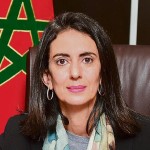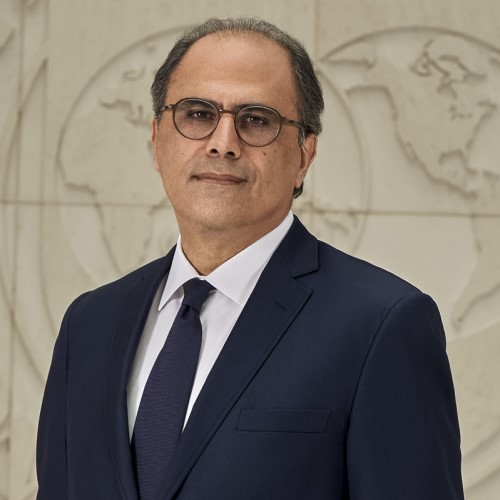Saturday, Apr 15, 2023 | 02:00 PM - 02:30 PM
Location: Cedar Hall, HQ1-1-660
SPEAKER
 |
||
| Nadia Fettah Minister of Economy and Finance, Morocco |
||
H.E. Nadia Fettah, appointed by His Majesty King Mohammed VI on October 7, 2021, is the first woman appointed to this position in the Kingdom of Morocco. Born in 1971, H.E. Nadia Fettah was the Minister of Tourism, Handicrafts, Air Transport, and Social Economy between 2019 and 2021. A high school graduate from the “Ecole des Hautes Etudes Commerciales” in Paris in 1994, H.E. Nadia Fettah started her career as a consultant in one of the largest financial studies offices before founding an investment fund in Morocco, which she managed for five years. After managing a Moroccan insurance company, H.E. Nadia Fettah accompanied a global holding corporate in developing its capital in Africa and the Middle East. In 2017, H.E. Nadia Fettah was Chief Executive Manager of a group of companies in Africa before being appointed as Minister. In parallel to her ministerial mission, H.E. Nadia Fettah is active in the associative field, as she was one of the founders of the Women’s Club, members of the boards of directors, as well as the global network “Women Corporate Directors.” H.E. Nadia Fettah was crowned the 2018 title of “The Best Contracting Director” at the African level during a continental meeting organized in Abidjan.
MODERATOR
 |
||
| Jihad Azour Director of the Middle East and Central Asia Department |
||
Mr. Jihad Azour is the Director of the Middle East and Central Asia Department at the International Monetary Fund where he oversees the Fund’s work in the Middle East, North Africa, Central Asia and Caucasus. Mr. Azour served as Lebanon’s Finance Minister in 2005-08, during which time he coordinated the implementation of important reforms, including modernizing the country’s tax and customs systems. Before and since his time as finance minister, he held a wide range of positions in the private sector, including McKinsey and Booz and Co. where he was a Vice-President and Senior Executive Advisor. Prior to joining the IMF in March 2017, he was a Managing Partner at investment firm Inventis Partners. Mr. Azour holds a PhD in International Finance and a post-graduate degree in International Economics and Finance, both from the Institut d'Etudes Politiques de Paris. He also did research on emerging economies and their integration into the global economy as a post-doctoral fellow at Harvard. Mr. Azour has published several books and articles on economic and financial issues and taught extensively.
SUMMARY
Moderator: Jihad Azour, Director of the Middle East and Central Asia Department
IMF Guest: Nadia Fettah, Minister of Economy and Finance, Morocco
Key Points:
Quotes
PHOTOS